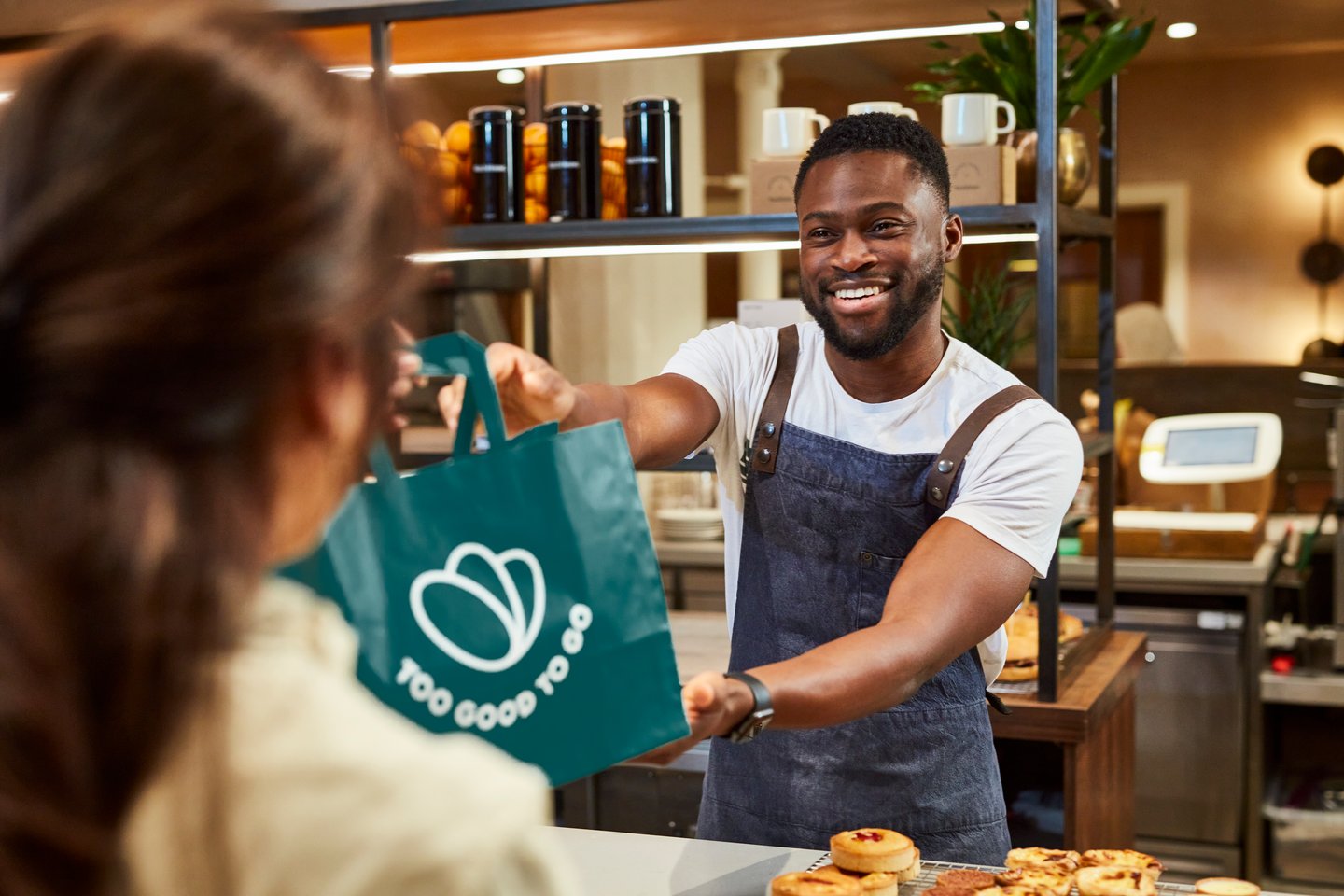Grocers are tackling food waste—and helping shoppers save
Every year, nearly 60% of food produced for Canada is lost or wasted, according to Second Harvest, the country’s largest food rescue charity.
Furthermore, 32% of that food is still edible and could have been redirected to communities in need.
But thanks to the growing popularity of food rescue apps like Too Good to Go, FoodHero, and Flashfood that help sell surplus food and drink to shoppers for a bargain, more and more Canadian grocers are reducing food waste while meeting customers’ growing desire to save on their grocery bills.
Case in point: Loblaw’s partnership with Flashfood—which connects consumers to heavily discounted food nearing its best-before date—helped the grocer divert more than 80 million pounds of food from landfill and helped Canadians save over $220 million on groceries in only three years. Flashfood partners have also see an average of 27% reduction in their shrink, and an average of 1.1 more store visits per month, the company said.
Users of the FoodHero app save an average of $1,200 annually on their grocery bills, and each store offering the program helps divert an average of 10,000 pounds of food from landfills every single month.
With Too Good To Go’s program, which first started in Denmark, shoppers download a free app to determine where they can pick up a “surprise bag” of perishable, highly discounted food items. Since launching in Canada in 2021, Too Good To Go counts 2.8 million users and more than 13,000 participating stores.
“Given the unpredictable nature of food surplus and the need for quick distribution, we immediately saw the potential of the surprise bag format to address a gap that existed,” says Mylène Champagne, director of environment and technical risks at Metro Inc., noting that almost 250 stores use Too Good To Go in Ontario and Quebec. “This format helps us manage items that can’t be frozen and need to be consumed quickly, preventing them from ending up in the compost.”
Champagne says surprise bags are being used in bakery, produce, meat and dairy departments, with the potential to add home-meal replacement and deli categories and mixed grocery options soon. She adds that employees are also enjoying the program, expressing “great satisfaction in distributing the surprise bags and witnessing the customers’ excitement.”
Joey Bernaudo is vice-president of merchandising at Longo’s, which is also partnered with Too Good To Go.
Bernaudo says his team works hard to plan and forecast what is needed, so that as little as possible is wasted across all departments of the store and supply chain. But he still welcomes tools and options to help manage the business and reduce waste.
All Longo’s locations participate in the program with pick-up spots in each store. Bernaudo says the partnership is a big win because it benefits store team members, guests and the surrounding community. “Over time, as people become more aware of the program, the number of guests looking to participate at Longo’s has increased,” he says. “We are able to save almost all of the available product on a daily basis, which is amazing.”
Too Good To Go country director Andrea Li says her organization also partners with grocers in determining ways to generate additional revenue. “Surprise bags are picked up at different points across the grocery store, so someone may opt to buy a coffee to go with the croissant they just found in their bag,” she says, noting that up to 50% of people who pick up bags spend an average of $20 buying additional items. “I envision a Canada without food waste so it really is about adding value to our partners.”
Metro’s Champagne says customer surveys indicate that many who come to pick up surprise bags are new to Metro and often purchase additional items during their visit. “This initiative not only attracts new customers who share our commitment to reducing food waste but also supports our goal of reducing food waste by 50% by 2025,” she says.
READ: How grocers decide what gets donated and what gets dumped
Food rescue app FoodHero is also gaining favour with some 1,000 grocers across the country, offering users an abundance of foods freshly frozen before their expiry dates. “You’ll find a lot of protein available through the app and what allows us to offer these foods is that we have this freezing process,” says Renaud LeBlanc, executive vice-president of the Montreal-based company. “About 80% of the food [offered] is frozen and what doesn’t sell goes to local food banks.”
This past summer, FoodHero announced a partnership with Empire and started rolling out its program with Sobeys in Ontario, as well as in Atlantic and Western Canada. (This is in addition to FoodHero’s already extensive reach across Quebec and New Brunswick with IGA, Rachelle-Béry, Marché Tradition and Metro.) “We deployed in 500 stores within three weeks in July and we’ve been operating very successfully since,” says LeBlanc.
Working collectively, using apps like FoodHero and AI-powered tools to help forecast supply, LeBlanc says grocers can have a big impact on ensuring a future with zero waste in Canada. “I really believe in that,” he says.




